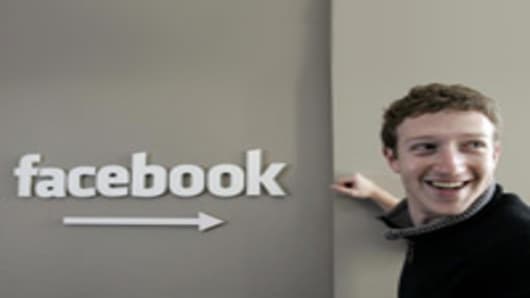It’s the capital markets event of the year.
But anyone wanting to buy stock in Facebook’s imminent initial public offering needs unwavering faith in the vision of Mark Zuckerberg, the social network’s founder.
There’s no doubt that Facebook, like Google before it, is breaking new ground with a potentially hugely influential use of the increasing interconnectedness of the world.
And an IPO that values Facebook at anything near $100 billion – raising more than $10 billion from the sale of new and existing shares – would be notable beyond the pleasing roundness of the numbers.



